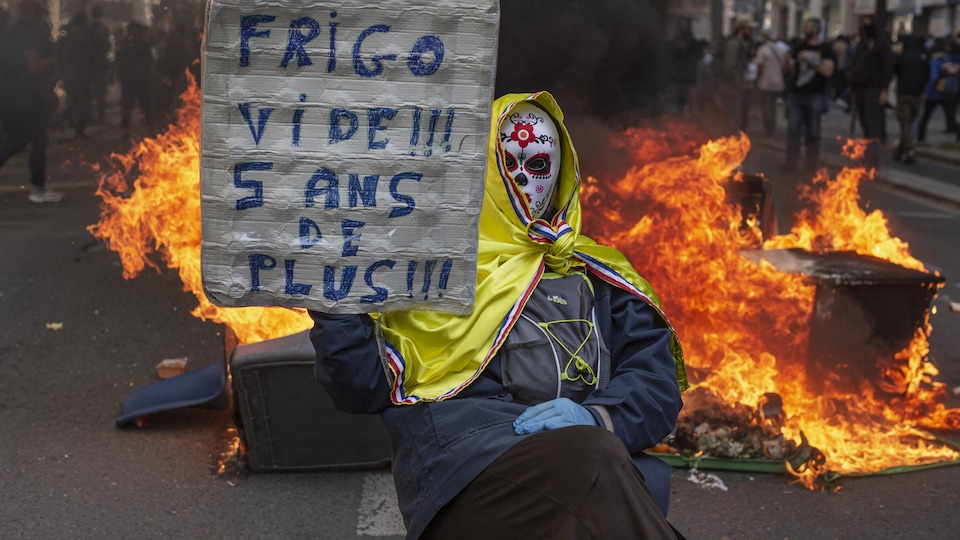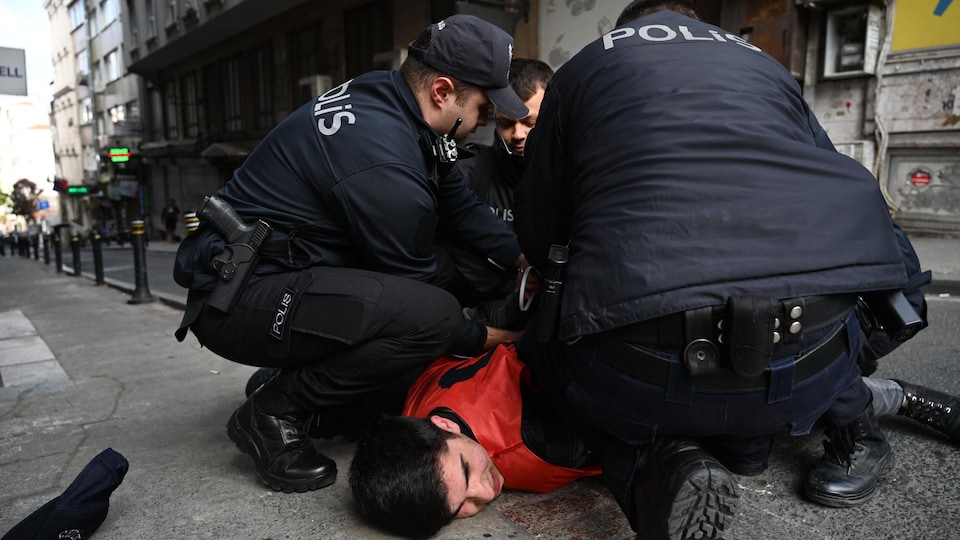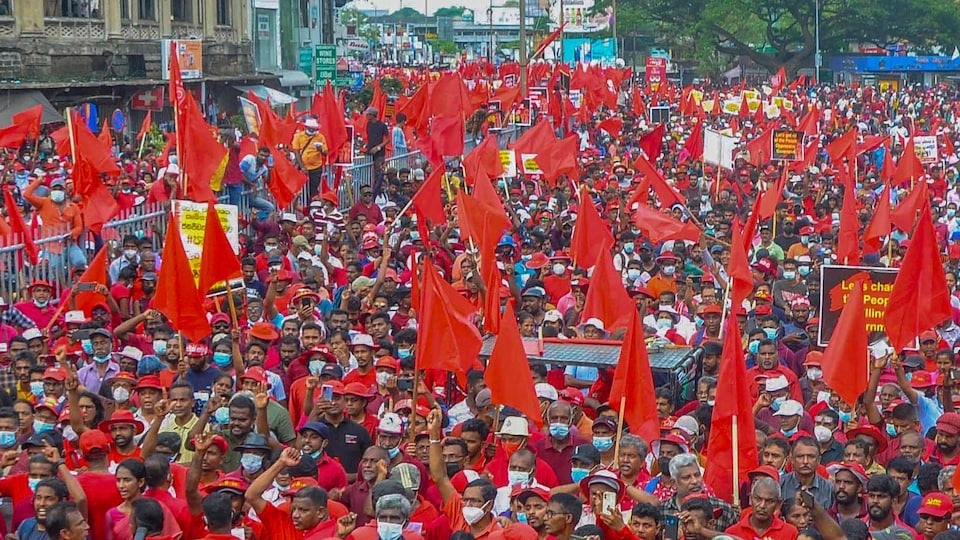The traditional May Day demonstrations were marked by Sunday’s incidents in France and by arrests in Turkey, while the issue of purchasing power was at the heart of global demand, due to inflation.
In Paris, many clashes erupted with police against very mobile groups of young people dressed in black. According to a journalist fromAFPabout twenty brands-mostly McDonald’s, insurers, real estate agencies or banks-were damaged by thieves, according to the terminology used by the Interior Minister. They also threw projectiles at police, who tried to disperse them with tear gas.
Across France, tens of thousands of people marched-often without incident-in a political context, following the re-election on April 24 of President Emmanuel Macron, against the far-right candidate Marine Le Pen.
Dozens of people were arrested in Istanbul, six days after the sentencing of patron Osman Kavala and seven members of civil society accused of wanting to overthrow the regime.
The governor’s services reported the arrest of 164 people who wanted to go to the famous Taksim Square, the center of major anti-government protests in 2013, which was closed to traffic and parades.
South African President Cyril Ramaphosa was in a hurry to leave the May Day celebrations after angry miners stormed the stage he was scheduled to speak at the Royal Bafokeng Stadium in Rustenberg (north). The protesters, who sang Cyril had to leaveask for extra wages.
In Sri Lanka, affected by a violent economic crisis, the opposition simultaneously demanded the resignation of President Gotabaya Rajapaksa, during large rallies.
Come home, Gota! chanted by thousands of activists in Colombo.
Months of power outages, runaway inflation and severe shortages of food, fuel and pharmaceuticals have sparked widespread protests against Rajapaksa since mid -March.
Thousands of people showed up in Athens, calling for more measures to support purchasing power in the face of inflation, which reached 9.4% in April in Greece.
If the minimum wage was raised on May 1 by 50 euros ($ 67.80), to 713 euros ($ 966.93) monthly, this measure was considered insufficient by the unions, asking for 825 euros ($ 1,118.82).
In Madrid, they were among about 10,000 demonstrators, according to a government spokesman, marching to demand wage increases and measures against inflation. A large banner reads: May 1. The solution: raise wages, contain prices and expand equality.
Other demonstrations have taken place everywhere in Spain and Andorra, where the rising cost of living, the price of housing and the loss of purchasing power are also among the demands.
Two large rallies are planned in Buenos Aires: one of groups close to the government, to express their support for the current policy, while pleading for a clearer social accent in the face of inflation; and others from organizations on the left of power, to express their opposition to debt repayment to the International Monetary Fund (IMF) and to demand a radical change in society.
In Italy, the major trade union confederations called for a rally in Assisi (center), city of Saint Francis, patron saint of Italy, on the theme To work for peace in the context of Russia’s invasion of Ukraine. We must work fully to end this absurd war, which Putin wantsdeclared the leader of the Cgil union, Maurizio Landini, in front of several hundred activists.
Berlin Mayor Franziska Giffey was giving a speech at a rally in Berlin, attended by 7,500 people, according to media reports, when a protester threw an egg at her. His security service was able to protect him with an umbrella.
Several thousand people also marched in London, at the call of unions and environmental or social organizations, such as Black Lives Matter (Black lives matter).
In Cuba, at the urging of the government, hundreds of thousands of Cubans, wearing face masks, marched in major cities as the island faced severe shortages and rising prices. After two years of imprisonment associated with the COVID-19 pandemic, the communist government called on workers to participate in these parades, arranging transportation by bus. The rally took place in Havana, in the presence of President Miguel Diaz-Canel and revolutionary leader Raul Castro.
Source: Radio-Canada


